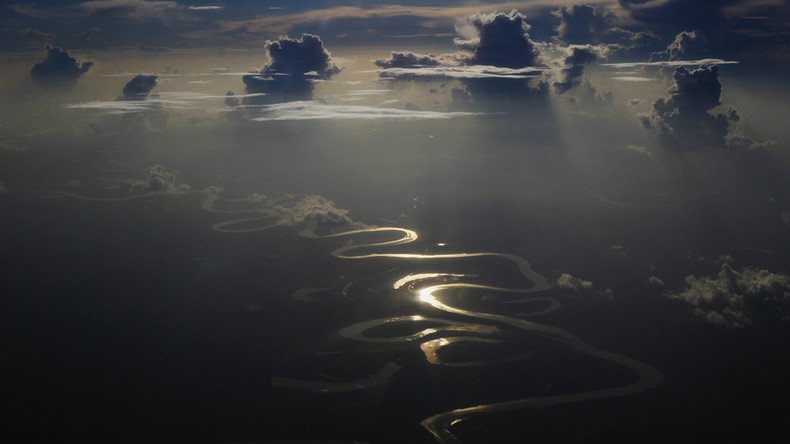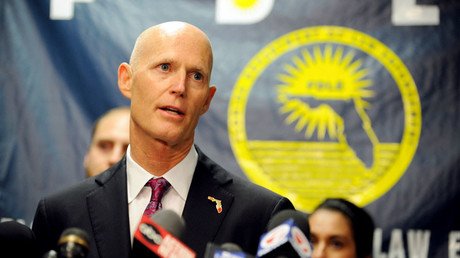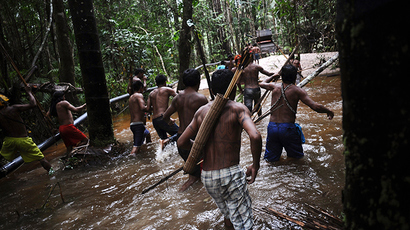Earth’s wilderness could be lost by 2050, tenth already destroyed – study

Biologists have drawn alarming conclusions about mankind’s unsustainable use of land and resources, finding that, since the early 1990s, our planet has lost a tenth of its wild places. If the trend continues, we stand to lose everything in 30 years’ time.
Writing for the journal Current Biology, researchers with the Wildlife Conservation Society have revealed that over the last 20 or so years, the Earth has lost 3.3 million square kilometers (1.27 million square miles) of wilderness – an area twice the size of Alaska and half the size of the Amazon rainforest – with the Amazon and Central Africa being the worst off.
They write that without immediate and serious reforms to international climate policy, there will be no way to reverse the threat of total loss and the devastating effects it will have on climate change and human civilization.
“Globally important wilderness areas – despite being strongholds for endangered biodiversity, for buffering and regulating local climates, and for supporting many of the world’s most politically and economically marginalized communities – are completely ignored in environmental policy,” says Dr. James Watson of the University of Queensland in Australia and the Wildlife Conservation Society in New York.
“Without any policies to protect these areas, they are falling victim to widespread development. We probably have one to two decades to turn this around,” he writes. “International policy mechanisms must recognize the actions needed to maintain wilderness areas before it is too late. We probably have one to two decades to turn this around.”
According to the report, one issue is the uneven attention paid to the environmental problems facing us – such taking care to amend policies on animal conservation, while leaving out the destruction of entire ecosystems.
We’ve destroyed one-tenth of Earth’s wilderness in just 2 decades https://t.co/Im0bl6REBWhttps://t.co/9sM41rBIYEpic.twitter.com/nXZpk3UT1J
— NatureEcoEvo (@NatureEcoEvo) September 9, 2016
An ecosystem is bigger than its contents. The Amazon rainforest, for example, isn’t just a big rainforest with a staggering variety of flora and fauna. Its presence affects the entire world in ways that cannot be overstated, and global warming increases with the disappearance of greenery.
The deforestation of the Amazon is, therefore, a global problem, according to the researchers. Local and regional climates depend immensely on the cycle of water and energy in the atmosphere generated by the presence of rainforests and woodlands.
According to the WWF, only about one percent of the plant life in the Amazon has been explored and the disappearance of wilderness can have a massive impact on populations indigenous to a given area, such as the Yanomamo of Brazil and Peru.
According to Watson, selective fixation on other areas of study has snubbed wilderness. Defining “wilderness” as untouched biologically and ecologically intact landscapes free of human disturbance, the team of researchers created a global map of its current distribution and then compared it to another map created using the same criteria from back in the 1990s. The results revealed that a dizzying 3.3 million square kilometers was lost during the time in between, with the hardest hit areas in South America and Africa, which have lost 30 and 14 percent of their wildernesses respectively.
Dr. Oscar Venter of the University of Northern British Colombia called the change “staggering.”
The biologist says humanity has foolishly believed that remote areas are protected simply because they’re hard to reach, arguing that the UN needs to get urgently involved, as it has consistently failed to address the issue in multiple multilateral agreements.
Otherwise, we stand to “lose the last jewels in nature’s crown. You cannot restore wilderness, once it is gone, and the ecological process that underpin these ecosystems are gone, and it never comes back to the state it was. The only option is to proactively protect what is left,” he said.
Chairman of the National Geographic Committee for Research and Exploration and President Emeritus of the Missouri Botanical Garden, Dr. Peter Raven, said: “Given the fact that we have already converted a third of the world’s land surface to agriculture of some kind, and that we are changing the atmosphere so rapidly that unless we start taking truly effective action now, it should not be surprising that the wild and natural areas of the world are being altered and even destroyed so rapidly.” Raven was not involved in the initial study.
“Given the inequalities between nations, however, and our reluctance to help one another much with conservation, there is no particular reason to think the future will be that much better than the past,” he continues, adding “to solve these problems we would need a level population that the Earth could support indefinitely; equitable consumption based on social justice around the world; the empowerment of women and children, so that everyone could use the gifts that they have for our common good; and a mutual understanding based on understanding and even loving one another as dwellers on a single finite planet.”
National Geographic writes that the world’s population is expanding by 250,000 people daily, and our collective civilization is projected to grow by an additional 2.4 billion people by 2050, up from 7.4 billion today, when, according to the Global Footprint Network, we are already consuming at a rate 1.64 times higher than we can afford.
The researchers are in agreement that territorial expansion and resource consumption that aren’t collective-minded are the biggest problems here.















